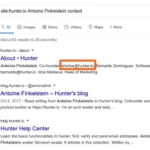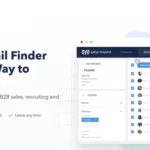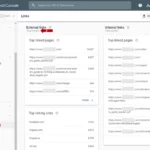SEO is crucial for freelancers as it helps in increasing their online visibility and attracting potential clients. By optimizing their website and content, freelancers can improve their search engine rankings and appear in relevant search results, ultimately leading to more opportunities and clients.
1. Understand SEO Basics
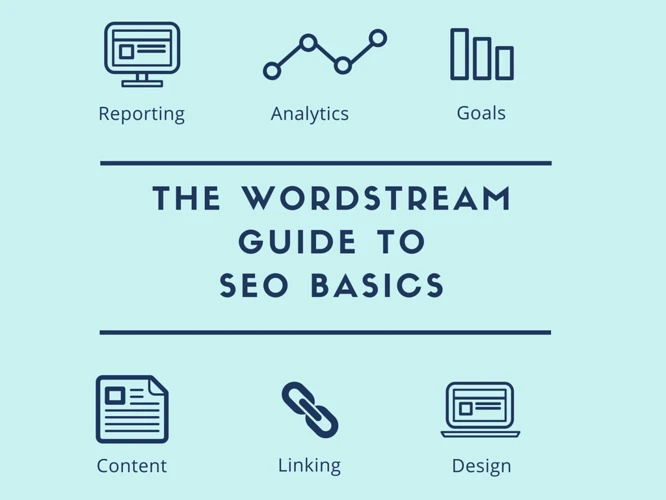
To become a successful SEO freelancer, it is crucial to have a solid understanding of on-page optimization. This refers to the optimization techniques implemented directly on a website to improve its search engine rankings. Key aspects of on-page optimization include keyword research and placement, meta tags optimization, URL structure optimization, and content optimization. By conducting thorough keyword research, you can identify the most relevant and high-volume keywords to target in your content, meta tags, and URLs. Remember to use relevant and natural keyword placements throughout your content while maintaining its readability and value to the user. Additionally, optimize your meta tags, including the title tag and meta description, to accurately describe the content of each page and entice users to click through to your website. Proper URL structure optimization involves creating clean and descriptive URLs that include relevant keywords. Lastly, focus on creating high-quality, engaging and informative content that aligns with the user’s intent and provides value. Remember to regularly update and refresh your content to keep it relevant and up-to-date.
In addition to on-page optimization, understanding off-page optimization is essential for a successful SEO freelancer. Off-page optimization refers to the techniques implemented outside of your website to improve its visibility and authority in search engine rankings. One of the most important aspects of off-page optimization is link building. Focus on acquiring high-quality and relevant backlinks from authoritative websites in your industry. These backlinks act as a vote of confidence for your website, signaling to search engines that your site is trustworthy and valuable. Additionally, social media presence and engagement play a significant role in off-page optimization. Create and maintain an active presence on social media platforms relevant to your target audience, and actively engage with your followers by sharing valuable content, responding to comments, and participating in relevant discussions. This will not only help increase your website’s visibility but also build your brand reputation and authority in your niche. Lastly, consider guest blogging opportunities to showcase your expertise and gain exposure in your industry. By contributing high-quality content to reputable websites, you can attract new audiences and establish yourself as an industry expert.
1.1 Learn On-Page Optimization
To become a successful SEO freelancer, it is essential to learn the intricacies of on-page optimization. On-page optimization refers to the techniques and strategies implemented directly on a website to improve its search engine rankings. One crucial aspect of on-page optimization is conducting thorough keyword research. By researching and identifying relevant and high-volume keywords, you can strategically incorporate them into your website’s content, meta tags, and URLs. The proper placement of these keywords throughout your content is essential, as it helps search engines understand the relevance and topic of your website. However, it’s important to emphasize that the use of keywords should be natural and relevant, ensuring that your content remains valuable and readable to users.
Another vital component of on-page optimization is optimizing your meta tags. These include the title tag and meta description that appear in search engine results. The title tag should be concise yet descriptive, containing relevant keywords. The meta description should provide a compelling summary of the page’s content, enticing users to click through to your website. Crafting compelling and optimized meta tags can significantly improve your website’s click-through rate and visibility in search results.
Optimizing your website’s URL structure is also crucial for on-page optimization. URLs should be descriptive, concise, and contain relevant keywords. A well-structured URL not only helps search engines understand the content of the page but also provides a user-friendly experience. Avoid using long, complex URLs with unnecessary parameters or symbols. Instead, aim for clean and readable URLs that accurately represent the page’s content.
Lastly, creating high-quality, engaging, and informative content is a fundamental aspect of on-page optimization. Your content should be tailored to the needs and interests of your target audience. It should provide valuable information, answer their queries, and offer solutions. Regularly updating and refreshing your content is crucial to keep it relevant and up-to-date, which can positively impact your website’s rankings.
By mastering on-page optimization techniques, you can effectively optimize your website’s elements to improve its visibility and rankings in search engine results, attracting more organic traffic and potential clients.
1.2 Familiarize with Off-Page Optimization
To become a successful SEO freelancer, it is crucial to familiarize yourself with off-page optimization techniques. Off-page optimization refers to strategies that are implemented outside of your website to improve its visibility and authority in search engine rankings. One of the most important aspects of off-page optimization is link building. Building high-quality and relevant backlinks from authoritative websites is essential for improving your website’s credibility and visibility. Focus on acquiring backlinks from reputable sources in your industry through techniques such as guest blogging, participating in industry forums, and reaching out to influencers or bloggers for collaborations. These backlinks serve as a vote of confidence for your website, signaling to search engines that your site is trustworthy and valuable.
In addition to link building, social media presence and engagement are crucial for off-page optimization. Create and maintain an active presence on social media platforms relevant to your target audience. Share valuable content, engage with your followers, and participate in relevant discussions to increase your website’s visibility and build your brand reputation. Social media platforms also provide an opportunity to share your content and attract organic traffic to your website.
Another off-page optimization technique to familiarize yourself with is online reputation management. Monitor and manage your online reputation by responding to customer reviews, addressing any negative feedback, and actively seeking positive reviews. A positive online reputation not only helps build trust with potential clients but also improves your website’s credibility in the eyes of search engines.
By familiarizing yourself with these off-page optimization techniques, you will be able to enhance your website’s visibility, authority, and credibility, ultimately leading to improved search engine rankings and increased organic traffic.
2. Gain Experience
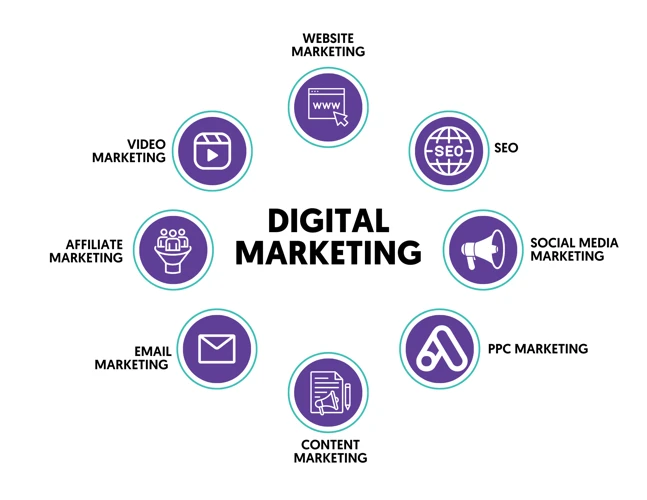
Gaining experience is crucial for becoming a successful SEO freelancer. There are several ways to gain practical experience in the field. First, you can start by working on personal projects. This allows you to apply your knowledge and skills in a real-world setting. Choose a niche or industry that interests you and create a website or blog where you can implement SEO strategies. Experiment with different techniques and track your results to learn what works best.
Another way to gain experience is by collaborating with others. Reach out to established SEO professionals or digital marketing agencies and offer your services as an intern or apprentice. This will give you the opportunity to learn from experienced practitioners, gain insights into their strategies, and contribute to real client projects. Additionally, working with others in the industry will help you build a network of contacts and potential clients.
Remember, experience is not just about the number of years you have worked in the field, but also the quality of your work and the results you have achieved. Focus on delivering exceptional results for your personal projects and collaborations, as this will help you build a strong reputation and portfolio. Keep track of your successes and document the strategies you implemented and the outcomes you achieved. This will serve as evidence of your skills and expertise when seeking freelance opportunities in the future.
By gaining practical experience and continuously learning from your projects, collaborations, and successes, you will develop the necessary skills and knowledge to thrive as an SEO freelancer.
2.1 Work on Personal Projects
Working on personal projects is an excellent way to gain experience and showcase your skills as an SEO freelancer. By taking on personal projects, you have the freedom to experiment with different strategies and tactics without the pressure of meeting client expectations. This allows you to learn from your successes and failures and refine your techniques. When working on personal projects, make sure to set goals and objectives that align with your desired outcomes. This could include improving the organic search rankings for a specific keyword, increasing website traffic, or optimizing the conversion rate. Track your progress and analyze the results to identify what works best for your project. Additionally, consider documenting your process and outcomes to add to your portfolio and demonstrate your capabilities to potential clients. Remember to stay organized and manage your time effectively to ensure the successful completion of your personal projects.
2.2 Collaborate with Others
Collaborating with others is a valuable step in gaining experience as an SEO freelancer. By working alongside fellow professionals, you can expand your knowledge, learn new strategies, and enhance your skills. One way to collaborate is by joining SEO communities and forums where you can connect with like-minded individuals and share insights. These platforms provide opportunities to ask questions, seek advice, and engage in discussions related to SEO. Additionally, consider reaching out to established SEO freelancers or agencies and offering your assistance on their projects. This can be a mutually beneficial arrangement, as you gain hands-on experience while providing value to their clients. Collaborating with others also opens doors for potential referrals and networking opportunities, which can lead to future projects and clients. Remember to maintain professionalism and establish clear boundaries when collaborating, ensuring that expectations and responsibilities are communicated effectively. By actively seeking out collaboration opportunities, you can accelerate your learning and growth as an SEO freelancer.
3. Improve Your Skills
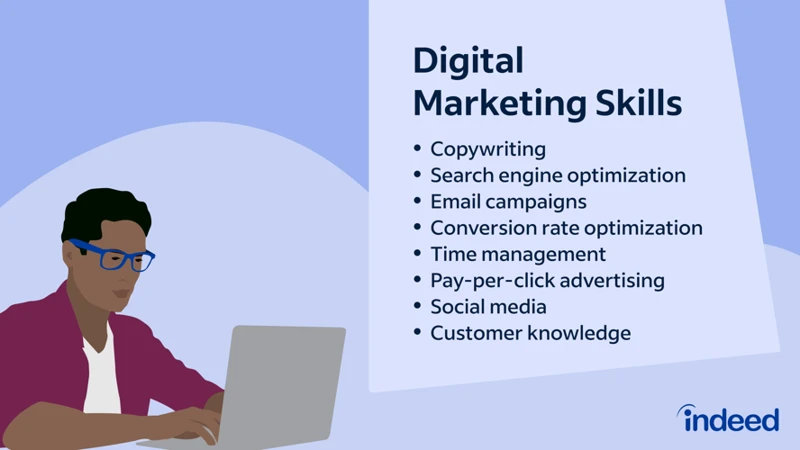
To thrive as an SEO freelancer, it is crucial to continuously improve your skills and stay updated with industry trends. Here are some key strategies to enhance your expertise in SEO:
1. Stay Updated with Industry Trends: SEO is a dynamic field, with algorithms and best practices constantly evolving. Stay informed about the latest industry trends by following reputable SEO blogs, attending webinars, and participating in industry forums. This will help you stay ahead of the curve and adapt your strategies accordingly.
2. Expand Your Knowledge on SEO Tools: Familiarize yourself with a variety of SEO tools that can help streamline your work and provide valuable insights. Tools like Google Analytics, SEMrush, and Moz can assist in keyword research, competitor analysis, and tracking website performance. Experiment with different tools to find the ones that work best for your needs.
3. Learn from Online Resources: Take advantage of the abundance of online courses, tutorials, and guides available to improve your SEO skills. Platforms like Udemy, Coursera, and HubSpot offer comprehensive SEO courses that cover various aspects of optimization. Additionally, reputable SEO blogs and YouTube channels provide valuable insights and tips for advancing your skills.
4. Join SEO Communities: Engage with other SEO professionals by joining online communities and forums. Platforms like Reddit and Quora have dedicated SEO communities where you can ask questions, share knowledge, and learn from others’ experiences. Networking with like-minded professionals can provide valuable insights and foster collaboration opportunities.
Remember, continuous learning and improvement are essential in the ever-changing world of SEO. By staying updated and expanding your knowledge, you can deliver exceptional results to your clients and establish yourself as a reputable SEO freelancer.
3.1 Stay Updated with Industry Trends
Staying updated with industry trends is crucial for any SEO freelancer looking to excel in their field. The world of SEO is constantly evolving, with search engines regularly updating their algorithms and introducing new ranking factors. To stay ahead of the game, it is important to follow industry-leading blogs and publications that provide insights and updates on the latest SEO trends. These resources often offer valuable information on algorithm changes, new optimization techniques, and emerging technologies that can impact search engine rankings. Another way to stay updated is by attending industry conferences and webinars. These events provide opportunities to learn from experts, network with fellow professionals, and gain a deeper understanding of the latest industry practices. Additionally, participating in online communities and forums can keep you informed about industry discussions and allow you to exchange knowledge with peers. By staying updated with industry trends, you can adapt your strategies accordingly and offer your clients the most effective SEO solutions. Remember, continuous learning and adaptation are key to success in the ever-changing world of SEO.
3.2 Expand Your Knowledge on SEO Tools
Expanding your knowledge on SEO tools is essential for becoming a successful SEO freelancer. These tools can help you streamline your workflow, analyze data, and optimize your website for better search engine rankings. One of the most popular SEO tools is Google Analytics, which provides valuable insights into website traffic, user behavior, and conversions. By understanding how users interact with your website, you can make informed decisions to improve its performance. Another important tool is Google Search Console, which allows you to monitor your website’s presence in Google search results, identify indexing errors, and optimize your website’s visibility. Additionally, keyword research tools such as Ahrefs, SEMrush, or Moz can help you identify relevant keywords, analyze their search volume and competition, and track your keyword rankings. These tools can provide valuable data to optimize your content and target the right keywords. SEO audit tools like Screaming Frog or DeepCrawl can help you identify technical issues on your website, such as broken links, duplicate content, or page speed problems. By fixing these issues, you can improve your website’s performance and user experience. It’s also important to stay up-to-date with the latest SEO trends and algorithm updates. This can be done by following industry blogs, attending webinars, or participating in SEO communities. Keeping up with the latest tools and trends will not only enhance your skills as an SEO freelancer but also help you stay ahead of the competition and provide better results for your clients.
4. Build a Portfolio

Building a strong portfolio is essential for establishing credibility and attracting clients as an SEO freelancer. Your portfolio should showcase your successful projects and highlight your achievements in the field. Here are some key steps to building an impressive portfolio:
4.1 Showcase Your Successful Projects:
Include a variety of projects that demonstrate your expertise in different aspects of SEO. This could include examples of websites you have optimized, successful keyword ranking improvements, or case studies showcasing the results you have achieved for clients. Include before and after data to highlight the impact of your work.
4.2 Highlight Your Achievements:
In addition to showcasing the projects you have worked on, highlight any specific achievements or milestones you have reached as an SEO freelancer. This could include notable rankings improvements, successful campaigns, or recognition in the industry. Use numbers and specific metrics to quantitatively demonstrate your impact.
4.3 Incorporate Client Testimonials:
Include testimonials from satisfied clients to provide social proof of your skills and capabilities. Ask clients for feedback and permission to use their testimonials in your portfolio. Testimonials should highlight the results you achieved for clients and the value they received from your services.
4.4 Keep Your Portfolio Up-to-Date:
Regularly update your portfolio with new projects and achievements. As you gain more experience and work on new projects, be sure to add them to your portfolio to showcase your growth and expertise.
By building a comprehensive portfolio that showcases your successful projects, highlights your achievements, and incorporates client testimonials, you can effectively demonstrate your skills and attract potential clients as an SEO freelancer. Remember to keep your portfolio up-to-date and continually add new projects and achievements to showcase your ongoing growth and success in the field.
4.1 Showcase Your Successful Projects
When building your portfolio as an SEO freelancer, it’s essential to showcase your successful projects to potential clients. This not only demonstrates your expertise and capabilities but also provides proof of your ability to deliver results. Here are a few key strategies to effectively showcase your successful projects:
1. Create a dedicated portfolio section on your website: Set up a separate page on your website where you can showcase your past projects. Use visual elements, such as screenshots or before-and-after comparisons, to highlight the improvements you made for each client. Include a brief description of the project, the challenges you faced, and the results you achieved. This will give potential clients a clear understanding of your skills and the value you can bring to their projects.
2. Use case studies: Develop in-depth case studies that delve into the details of your successful projects. Include information about the client’s goals, the strategies you implemented, and the measurable results you achieved. Use data and analytics to support your claims and provide concrete evidence of your success. Case studies not only showcase your abilities but also provide potential clients with a deeper understanding of your approach and problem-solving skills.
3. Request testimonials: Ask your satisfied clients to provide testimonials that highlight their positive experience working with you. Testimonials add credibility and trust to your portfolio, showing potential clients that you have a track record of delivering excellent results. Include client names, company names, and job titles (with their permission) to add further authenticity to the testimonials.
4. Highlight specific achievements: If you have achieved any notable milestones or received recognition for your work, be sure to highlight them in your portfolio. This could include awards, certifications, or significant improvements in search engine rankings and website traffic. These achievements demonstrate your commitment to excellence and can set you apart from other SEO freelancers.
Remember to regularly update your portfolio as you complete new projects and achieve new milestones. By showcasing your successful projects, you can attract potential clients and build a strong reputation as an SEO freelancer.
4.2 Highlight Your Achievements
When building your portfolio as an SEO freelancer, it’s important to highlight your achievements to showcase your expertise and attract potential clients. Here are some effective ways to highlight your achievements:
1. Showcase Successful Projects: Include a section in your portfolio that highlights the successful SEO projects you have worked on. Provide details about the goals of the project, the strategies you implemented, and the results you achieved. Use visuals such as graphs or charts to illustrate the improvements in search engine rankings, organic traffic, or conversions. This will demonstrate your ability to deliver tangible results.
2. Quantify Results: Whenever possible, quantify the impact of your SEO efforts. For example, mention the percentage increase in organic traffic, the number of keywords that ranked on the first page of search results, or the revenue generated from SEO-driven conversions. This will give potential clients a clear understanding of the value you can bring to their business.
3. Client Testimonials: Request testimonials from satisfied clients and include them in your portfolio. Testimonials add credibility to your work and provide social proof of your expertise. Ask clients to specifically mention the positive impact your SEO services had on their business, such as increased visibility, higher rankings, or improved website performance.
4. Awards and Certifications: If you have received any awards or certifications related to SEO, make sure to highlight them in your portfolio. This demonstrates your commitment to staying current with industry best practices and shows that you have been recognized for your expertise.
5. Case Studies: Create detailed case studies that showcase your problem-solving skills and the strategies you implemented to overcome specific SEO challenges. Include information about the client’s industry, their goals, the obstacles you faced, and the innovative solutions you implemented. Case studies provide potential clients with a deeper understanding of your capabilities and the results you can achieve.
By highlighting your achievements in your portfolio, you will differentiate yourself from other SEO freelancers and attract clients who are looking for proven expertise. Remember to regularly update your portfolio with new projects and achievements to demonstrate your continuous growth and success in the field of SEO.
5. Create a Professional Website

Creating a professional website is essential for any SEO freelancer looking to establish their online presence and attract potential clients. When designing your website, it is important to prioritize user experience (UX) and ensure that the site is visually appealing, easy to navigate, and responsive across different devices. Use a clean and professional design that reflects your brand and showcases your expertise in the field of SEO.
Optimize your website for SEO by incorporating relevant keywords in your website’s meta tags, headings, and content. Conduct thorough keyword research to identify the most valuable and high-volume keywords related to your services. Incorporate these keywords naturally throughout your website to improve its visibility in search engine rankings. Additionally, optimize your website’s loading speed by compressing images, minimizing code, and using caching techniques. A fast-loading website not only improves user experience but also signals to search engines that your site is efficient and reliable.
Include a dedicated portfolio section on your website to showcase your successful SEO projects. Highlight the challenges you faced, the strategies you employed, and the positive outcomes you achieved for your clients. This will help potential clients understand your capabilities and the results you can deliver.
Testimonials from satisfied clients are an effective way to build trust and credibility. Include testimonials on your website that highlight the positive experiences and results your clients have had while working with you. Potential clients are more likely to trust and hire an SEO freelancer who has a track record of delivering successful results.
Lastly, don’t forget to include a contact form or call-to-action on your website to make it easy for potential clients to get in touch with you. Provide clear information about your services, pricing options, and any other relevant details that potential clients may need to make a decision.
By creating a professional website that is optimized for SEO, showcases your portfolio and testimonials, and provides clear contact information, you will position yourself as a credible and trustworthy SEO freelancer, attracting potential clients and growing your business.
5.1 Optimize Your Website for SEO
Optimizing your website for SEO is crucial to ensure that it ranks well in search engine results and attracts organic traffic. Here are some key steps to optimize your website for SEO:
1. Conduct Keyword Research: Start by identifying relevant keywords related to your business or industry. Use keyword research tools to find high-volume and low-competition keywords that you can target in your website content.
2. On-Page Optimization: Optimize your website’s on-page elements such as title tags, meta descriptions, headers, and URLs. Include your target keywords in these elements while ensuring they are relevant and natural.
3. Create High-Quality Content: Develop informative and engaging content that provides value to your audience. Incorporate your target keywords naturally within the content while maintaining readability and relevance.
4. Improve Website Speed: Optimize your website’s loading speed by compressing images, minifying CSS and JavaScript files, and utilizing caching techniques. A faster website enhances user experience and improves SEO rankings.
5. Mobile-Friendly Design: Ensure that your website is responsive and mobile-friendly. With the increasing use of mobile devices, search engines prioritize mobile-friendly websites in their rankings.
6. User-Friendly Navigation: Create a clear and intuitive website navigation structure that allows users to easily find the information they are looking for. A well-organized website improves user experience and encourages longer visits.
7. Internal Linking: Incorporate internal links within your website’s content to guide users to relevant pages. Internal linking helps search engines understand the structure of your website and improves its crawlability.
8. Optimize Images: Compress and optimize images on your website to reduce their file size without compromising quality. Use descriptive alt tags for images to provide context to search engines.
9. Monitor Website Performance: Regularly analyze your website’s performance using tools like Google Analytics. Monitor metrics such as organic traffic, bounce rate, and conversion rates to identify areas for improvement.
By implementing these SEO optimization techniques, you can improve your website’s visibility, attract more organic traffic, and ultimately drive business growth. Remember to regularly update and adapt your SEO strategies as search engine algorithms evolve.
5.2 Include Your Portfolio and Testimonials
When building a professional website as an SEO freelancer, it is crucial to include a portfolio of your past work and testimonials from satisfied clients. Your portfolio serves as tangible evidence of your skills and expertise in the field of SEO. It showcases the projects you have successfully completed and demonstrates the results you have achieved for your clients. Include a variety of case studies that highlight different aspects of your work, such as improving search engine rankings, increasing website traffic, or optimizing conversion rates. Use visual elements like charts, graphs, and screenshots to illustrate the impact of your SEO strategies. Additionally, include testimonials from clients who have been satisfied with your services. These testimonials add credibility to your work and provide potential clients with social proof of your capabilities. Ensure that the testimonials are specific, highlighting the positive results your clients have experienced as a result of your SEO efforts. Remember to obtain permission from your clients before featuring their testimonials on your website. By including a portfolio and testimonials on your website, you are effectively showcasing your skills and building trust with potential clients.
6. Market Yourself
To succeed as an SEO freelancer, it’s crucial to effectively market yourself and showcase your expertise to potential clients. Utilizing social media platforms is an excellent way to build your online presence and reach a wider audience. Create professional profiles on platforms such as LinkedIn, Twitter, and Facebook, and consistently share valuable content related to SEO and digital marketing. Engage with your followers by responding to comments, participating in discussions, and sharing industry insights. This will not only help establish your credibility but also attract potential clients who are looking for SEO services. Networking with potential clients is another essential aspect of marketing yourself as an SEO freelancer. Attend industry conferences, workshops, and events to meet professionals in your field. Connect with them on LinkedIn and establish relationships by offering assistance and sharing valuable insights. Building a strong network can lead to referrals and collaborations, helping you expand your client base. Additionally, consider offering free consultations or audits to potential clients to showcase your expertise and highlight the value you can provide. Finally, don’t forget the power of a well-optimized website. Ensure your website is SEO-friendly and showcases your portfolio, testimonials, and contact information prominently. This will help potential clients find you when they search for SEO services. By effectively marketing yourself, you can position yourself as a reputable and skilled SEO freelancer, attracting clients and growing your business.
6.1 Utilize Social Media
When it comes to marketing yourself as an SEO freelancer, social media can be a powerful tool. Utilizing social media platforms effectively can help you reach a wider audience and showcase your expertise. Start by identifying the platforms that are most relevant to your target audience. This could include popular platforms like Facebook, Twitter, LinkedIn, and Instagram. Create professional profiles on these platforms and optimize them with relevant keywords and a compelling description of your services. Regularly share valuable content related to SEO and digital marketing to establish yourself as a thought leader in your industry. Engage with your audience by responding to comments, addressing questions, and participating in relevant discussions. Use visual content such as infographics, videos, and images to grab attention and increase engagement. Consider running targeted advertising campaigns on social media platforms to reach a larger audience and promote your services. Another effective strategy is to join industry-specific groups and communities where you can network with potential clients and other professionals in your field. By consistently leveraging the power of social media, you can build your online presence, attract clients, and establish yourself as a reputable SEO freelancer. For more information on how to start a successful marketing career, check out this guide.
6.2 Network with Potential Clients
When it comes to networking with potential clients as an SEO freelancer, there are several strategies you can employ to expand your professional network and attract new business opportunities.
Attend industry events: Participate in conferences, workshops, and seminars related to SEO and digital marketing. These events provide excellent opportunities to meet industry professionals, potential clients, and learn about the latest trends and developments in the field.
Join online communities: Engage in online forums, groups, and communities where professionals discuss SEO and digital marketing topics. Contribute valuable insights, answer questions, and showcase your expertise to establish yourself as a knowledgeable and reliable SEO freelancer.
Offer free consultations or audits: Provide potential clients with a complimentary consultation or website audit to demonstrate your expertise and showcase the value you can bring to their business. This can help establish trust and build relationships with potential clients.
Collaborate with other freelancers or agencies: Partnering with other freelancers or agencies in complementary fields, such as web design or content writing, can lead to referrals and collaborative projects. Reach out to professionals in your network or explore platforms that connect freelancers for potential collaboration opportunities.
Utilize social media: Leverage platforms like LinkedIn, Twitter, and Facebook to connect with potential clients and industry influencers. Share valuable content, engage in conversations, and actively participate in relevant groups and discussions to expand your network and attract potential clients.
Remember, networking is not just about promoting your services but also about building genuine relationships and providing value to others. By establishing yourself as a trusted expert and nurturing professional connections, you can attract potential clients and grow your SEO freelancing business.
Conclusion
In conclusion, becoming a successful SEO freelancer requires a strong foundation in SEO basics, including both on-page and off-page optimization. By mastering on-page optimization techniques such as keyword research and placement, meta tag optimization, URL structure optimization, and content creation, you can ensure that your website is optimized for search engine rankings and user experience. Additionally, understanding the importance of off-page optimization, such as link building, social media engagement, and guest blogging, will help you build your website’s authority and visibility in search engine results. As you gain experience and improve your skills, it is essential to build a portfolio showcasing your successful projects and highlight your achievements. Creating a professional website optimized for SEO and including your portfolio and testimonials will further enhance your credibility as an SEO freelancer. Lastly, marketing yourself through social media and networking with potential clients will help you attract new opportunities and grow your freelancing business. By following these steps and continuously staying updated with industry trends and SEO tools, you can embark on a successful career as an SEO freelancer. So, what are you waiting for? Start your journey to becoming a sought-after SEO freelancer today!
Frequently Asked Questions
1. What is the importance of SEO for freelancers?
SEO is crucial for freelancers as it helps in increasing their online visibility and attracting potential clients. By optimizing their website and content, freelancers can improve their search engine rankings and appear in relevant search results, ultimately leading to more opportunities and clients.
2. How long does it take to see results from SEO efforts?
The timeline for seeing results from SEO efforts can vary depending on various factors such as the competitiveness of the industry, the quality of optimization, and the consistency of efforts. Generally, it takes several months to start seeing noticeable improvements in search engine rankings and organic traffic.
3. Are there any free SEO tools available for freelancers?
Yes, there are several free SEO tools available for freelancers. Some popular options include Google Analytics for tracking website performance, Google Search Console for monitoring website health, and Google Keyword Planner for conducting keyword research. Additionally, tools like MozBar and SEMrush offer limited free features that can be helpful for freelancers.
4. How often should freelancers update their SEO strategies?
Freelancers should regularly evaluate and update their SEO strategies to adapt to changing search engine algorithms and industry trends. It is recommended to review and make adjustments to your SEO strategies every few months to ensure they remain effective and aligned with the latest best practices.
5. Can freelancers specialize in a specific area of SEO?
Absolutely! Freelancers can choose to specialize in specific areas of SEO such as local SEO, e-commerce SEO, technical SEO, or content optimization. By specializing, freelancers can position themselves as experts in a particular niche and attract clients who specifically require expertise in that area.
6. Is it necessary to have coding knowledge for SEO freelancing?
While having coding knowledge can be beneficial for SEO freelancers, it is not a strict requirement. Many SEO tasks can be accomplished using user-friendly content management systems and SEO plugins. However, having a basic understanding of HTML, CSS, and JavaScript can help freelancers make more advanced optimizations.
7. How can freelancers stay updated with the latest SEO trends?
Freelancers can stay updated with the latest SEO trends by following reputable industry blogs, subscribing to newsletters, and participating in online communities and forums. Attending SEO conferences and webinars can also provide valuable insights into the ever-evolving SEO landscape.
8. Should freelancers focus on organic SEO or paid advertising?
Both organic SEO and paid advertising have their benefits. Organic SEO helps freelancers establish a strong online presence and attract long-term organic traffic, while paid advertising can provide immediate visibility and reach a wider audience. It is recommended to have a balanced approach by utilizing both strategies based on your specific goals and budget.
9. How can freelancers measure the success of their SEO efforts?
Freelancers can measure the success of their SEO efforts by tracking key metrics such as organic traffic, keyword rankings, conversion rates, and user engagement. Tools like Google Analytics and Google Search Console provide valuable insights and data to analyze the performance of your SEO strategies.
10. Can freelancers offer SEO services to clients remotely?
Absolutely! SEO services can be offered remotely, allowing freelancers to work with clients from around the world. With effective communication tools and project management platforms, freelancers can collaborate with clients, provide regular updates, and deliver high-quality SEO services regardless of geographical location.




